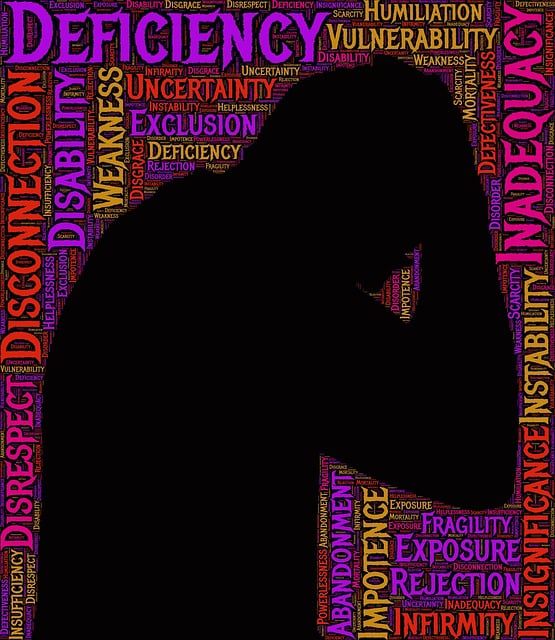RFM (Resilient, Flexible, Mobile) therapy is an innovative approach tailored to young children in German-speaking regions, focusing on emotional intelligence and resilience. Through play-based therapies, mindfulness techniques, and language-specific activities, RFM equips kids with tools for stress management, emotional regulation, and coping mechanisms. This method reduces stigma, strengthens family bonds, and supports both personal growth and academic success. By integrating RFM practices at home, parents can significantly enhance their children's mental well-being while empowering them to navigate life's challenges effectively.
“Resilience is a cornerstone of emotional well-being, especially for young minds navigating life’s challenges. This article delves into the power of RFM (Resilience, Flexibility, and Mindfulness), a therapeutic approach transforming the lives of children, particularly those in the German-speaking community. We explore how tailored resilience-building exercises enhance traditional therapy, offering practical strategies for parents to support their children’s mental health at home. Discover the benefits of common RFM activities and learn how to cultivate a resilient mindset in young, German-speaking children.”
- Understanding RFM and Its Impact on Young Minds
- The Role of Resilience Building Exercises in Therapy
- Tailoring Techniques for German-Speaking Children
- Common RFM Activities and Their Benefits
- Implementing RFM at Home: A Guide for Parents
Understanding RFM and Its Impact on Young Minds

Understanding RFM—or Resilient, Flexible, and Mobile—is key when considering therapy for young children, particularly those in German-speaking regions. This approach focuses on equipping kids with essential skills to navigate life’s challenges, fostering emotional intelligence and resilience from a young age. By integrating techniques that promote emotional regulation and anxiety relief, RFM builds a foundation of mental toughness that can significantly impact a child’s overall well-being.
In the context of German-speaking therapy, RFM exercises are designed to be engaging and accessible, addressing the unique needs of young minds. These activities aim to enhance children’s ability to adapt to change, manage stress, and understand their emotions—skills crucial for both personal growth and academic success. Through play, discussion, and guided practices, children learn to confront and overcome obstacles, thereby developing a sense of self-efficacy that can be life-changing.
The Role of Resilience Building Exercises in Therapy

Resilience building exercises play a pivotal role in therapy for young children, particularly those speaking German. These practices are designed to enhance emotional regulation and foster a sense of security, which is crucial for healthy development. Through engaging in activities that cultivate compassion and empathy, children learn to navigate challenging situations with greater ease.
In the context of therapy, these exercises often include play-based therapies and mindfulness techniques tailored to young minds. Public awareness campaigns and compassion cultivation practices can significantly contribute to building resilience by normalizing conversations about mental health and emotional well-being. By integrating these strategies into therapeutic routines, professionals aim to empower children with effective coping mechanisms, thereby improving their overall quality of life and mental health outcomes.
Tailoring Techniques for German-Speaking Children

Many therapy techniques for young children are designed to be adaptable and customizable, which is particularly beneficial when working with German-speaking children. By incorporating their native language into therapeutic exercises, healthcare providers can create a more comfortable and effective environment. This approach not only enhances communication but also fosters trust and encourages active participation from the child.
Tailoring therapy to suit cultural needs, such as providing Healthcare Provider Cultural Competency Training, is crucial in building resilience. German-speaking children may face unique challenges related to mental illness stigma reduction efforts, so it’s essential to use techniques that resonate with them. Through language-specific activities and a supportive atmosphere, therapists can help these children develop inner strength and build resilience, ensuring they receive the best possible care tailored to their cultural background.
Common RFM Activities and Their Benefits

Resilience-building exercises through RFM (Restorative Family Mediation) offer a therapeutic approach tailored for young children, particularly those in German-speaking communities. Common activities include play therapy and structured conversations designed to help kids process emotions, improve communication, and develop coping mechanisms. These sessions not only foster emotional intelligence but also serve as powerful tools in stigma reduction efforts related to mental illness.
By engaging in RFM, families can strengthen their bonds while learning effective strategies for managing stress and conflict. This proactive approach contributes to burnout prevention strategies for healthcare providers working with mental health issues, ensuring professionals remain equipped to support their clients. Moreover, comprehensive risk management planning for mental health professionals is facilitated, as RFM provides a framework for identifying and mitigating potential risks within therapeutic settings.
Implementing RFM at Home: A Guide for Parents

Implementing RFM (Resilience, Flexibility, and Mindfulness) at home can be a powerful tool for parents looking to enhance their children’s mental well-being, especially for those with young German-speaking children in need of therapy. This approach fosters a sense of security and empowers kids to navigate life’s challenges. By integrating RFM practices into daily routines, parents can teach their children valuable skills such as positive thinking, emotional regulation, and stress management.
Starting early with these resilience-building exercises is beneficial for mental health professionals conducting risk assessments. Cultural sensitivity in mental healthcare practice should guide the implementation of RFM, ensuring that techniques are adapted to suit each family’s unique cultural background. This tailored approach can strengthen the bond between parents and children, creating a supportive environment where kids feel safe to explore their emotions and develop coping mechanisms for life’s ups and downs.
Resilience building exercises, often utilizing RFM (Resourceful Fronting Methods), offer a powerful tool in therapy for young children, particularly those from German-speaking backgrounds. By tailoring techniques to suit their unique needs, therapists can enhance these children’s emotional resilience and coping skills. The activities discussed provide practical ways to implement RFM at home, empowering parents to support their child’s mental well-being and navigate life’s challenges with growing adaptability. This approach promises a transformative journey toward fostering robust and resilient German-speaking young minds.












